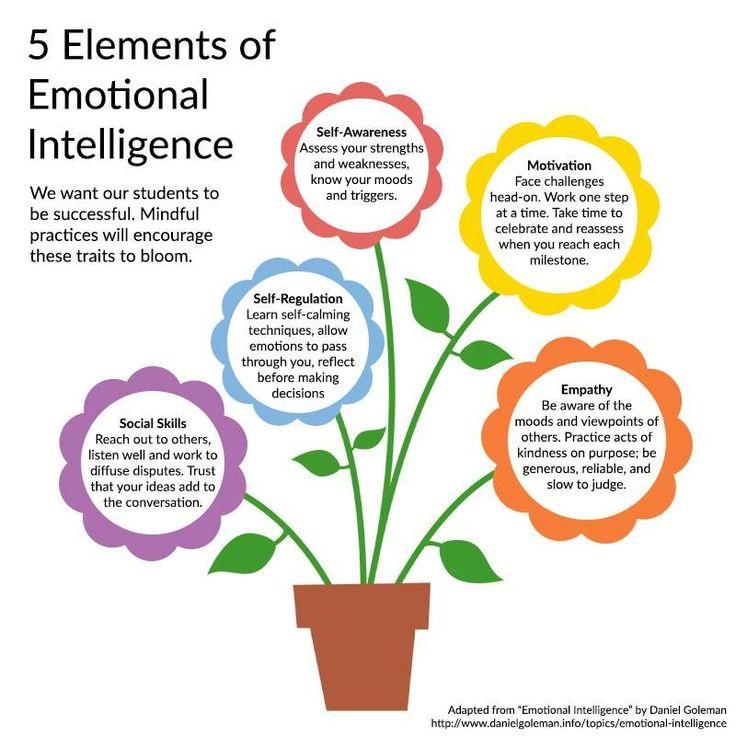Why Emotional Intelligence Is Essential in Education: Unlocking Student Success
In today’s rapidly evolving educational landscape, success isn’t defined solely by academic achievement.Emotional intelligence in education plays a pivotal role in fostering well-rounded, resilient, and prosperous students. As educators,parents,and policymakers seek innovative ways to improve learning outcomes,understanding the significance of emotional intelligence becomes imperative.This article delves into why emotional intelligence is essential in education, its benefits, strategies for implementation, and first-hand insights illustrating its profound impact on student success.
What Is Emotional Intelligence?
Emotional intelligence (EI or EQ) refers to the ability to recognize, understand, manage, and effectively use emotions in ourselves and others. Psychologist Daniel Goleman, a pioneer in this field, defines emotional intelligence as comprising five core components:
- Self-awareness: Recognizing and understanding your emotions
- Self-regulation: Managing emotions in healthy ways
- Motivation: Channeling emotions towards positive goals
- Empathy: Understanding and sharing the feelings of others
- Social skills: building healthy relationships and navigating social complexities
When integrated into classroom environments, these skills lay the foundation for lifelong success both academically and personally.
Why Is Emotional Intelligence Crucial in Education?
Conventional education systems have focused largely on cognitive skills such as math, reading, and science. While academic expertise is vital, it is now widely recognized that social-emotional learning (SEL) and emotional intelligence are equally essential for preparing students to thrive in their personal and professional lives.
here’s why developing emotional intelligence in students is more critically important than ever:
- Enhances Academic Performance: Research shows that students with high emotional intelligence perform better academically due to improved focus, perseverance, and motivation.
- Builds Resilience: Emotional intelligence equips students to cope with setbacks, manage stress, and bounce back from failures.
- Fosters Positive Relationships: Students with strong EI display empathy, communicate effectively, and resolve conflicts peacefully—crucial skills for group work and social harmony.
- Promotes Mental Health: EI helps students recognize and manage anxiety, depression, and othre emotional challenges, leading to better overall well-being.
- Encourages Lifelong Success: Emotional intelligence is fundamental in preparing students for leadership, teamwork, and adapting to the demands of an ever-changing world.
Benefits of Emotional Intelligence in the Classroom
Integrating emotional intelligence into education offers a wealth of advantages for both students and teachers. Below are some key benefits:
For Students
- Increased Self-Confidence: Students understand their strengths and areas for growth.
- Better Concentration: Emotionally balanced students are less distracted by stress or peer pressure.
- Stronger Coping Skills: Students manage academic and social challenges more effectively.
- Improved Social interactions: High EI fosters respectful communication, collaboration, and inclusiveness.
For Educators
- positive Classroom Climate: Classrooms with an emotional intelligence focus experience fewer behavioral problems.
- Stronger Teacher-Student Relationships: Empathetic educators connect better with their students,increasing trust and engagement.
- Reduced Teacher Burnout: Emotionally smart teachers handle stress and workload more efficiently.
Practical Tips for Fostering Emotional Intelligence in Education
Incorporating EI into everyday learning doesn’t have to be intricate. Here are actionable strategies for parents and educators:
- model Emotional Intelligence: Teachers and parents should demonstrate self-awareness, self-regulation, and empathy in interactions with students.
- Implement Social-Emotional Learning Programs: Many schools now offer SEL curricula that integrate EI lessons into daily activities, such as group projects, discussions, or mindfulness exercises.
- Encourage Open Communication: Create a safe space for students to express their feelings and concerns without judgment.
- Teach Conflict Resolution: Use peer mediation and collaborative problem-solving to empower students to resolve disputes amicably.
- Practice Mindfulness and stress Management: Integrate relaxation techniques, journaling, or breathing exercises into the school day.
- Provide Constructive Feedback: Focus on strengths and offer guidance for improvement, fostering a growth mindset.
Case Studies: The Impact of Emotional Intelligence in Real Classrooms
Real-life examples showcase the transformative impact of integrating emotional intelligence into education:
“After implementing a weekly SEL programme,our elementary school saw a notable decrease in bullying incidents and a remarkable improvement in overall classroom participation. Students became more respectful, attentive, and willing to help each other.”
— Ms. Johnson, Grade 5 Teacher, New York
“Our high school adopted mindfulness and conflict resolution exercises as part of morning routines. Not only did academic grades improve, but students reported lower levels of stress and anxiety during exam periods.”
— Mr. Kumar, principal, California
These case studies highlight how emotional intelligence leads to better academic outcomes and healthier emotional climates within schools.
First-Hand Experience: Voices from the Classroom
Teachers,students,and parents alike have seen the real benefits of focusing on emotional intelligence:
- student Perspective: “Learning how to talk about my feelings has made group work less scary and more fun for me. I feel like I can be myself in class.” — Emma, 7th Grade
- Parent Perspective: “My child comes home happier and more eager to share their day. They’re able to handle disagreements with friends much better now.” — Sarah, Parent
- Teacher Perspective: “Integrating emotional learning has transformed my classroom. Students participate actively, show empathy for classmates, and resolve conflicts on their own.” — Mrs. Chang, 4th Grade Teacher
Conclusion: Emotional Intelligence—A Key to Unlocking Student Success
As the demands of modern society evolve, emotional intelligence in education is not just an added benefit—it is indeed a necessity. Schools fostering emotional intelligence empower students to excel academically, build meaningful relationships, and navigate life’s challenges with confidence. By prioritizing emotional intelligence alongside traditional academic skills, we are helping students reach their full potential and prepare for a bright, successful future. Let’s embrace emotional intelligence as the gateway to unlocking true student success.

